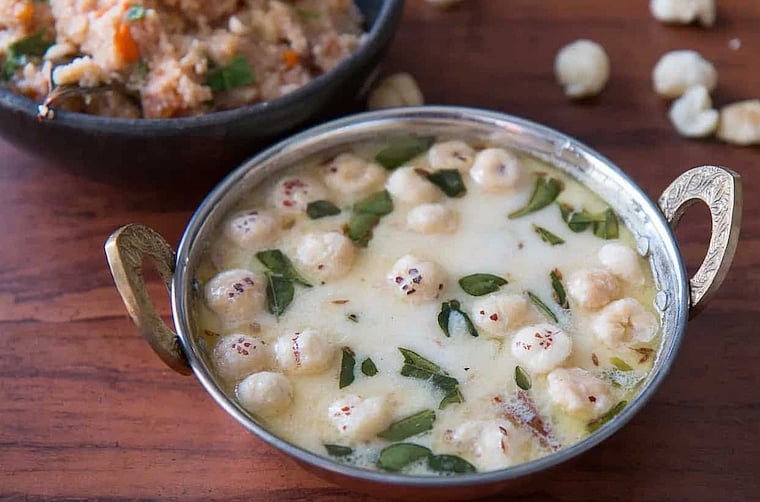New Delhi: Navratri is the festival where nine days of fasting can be observed by a devotee. Many pregnant ladies wish to fast for their religious or personal beliefs. However, it is said that women during pregnancy should be very careful when it comes to fasting because it is not only the mother who needs all the essential nutrients but also the need of the fetus for healthy growth and development.

It is an important nutrient source that not only provides energy to muscles and the brain but using the right kind of carbs in the diet can effectively help to provide essential nutrients, build the desired body or accelerate fitness goals. There are two types of carbs — slow and fast carbs, which depend on the Glycemic Index ( the rate at which carbs get digested compared to glucose secretion).
Fast carbs have a high GI and release energy at a much higher pace and get used quickly, which makes you feel hungry often and add to weight gain issues. Fast carbs include processed foods such as bread, sugars, starchy vegetables, fruit juices etc.
As compared to this, slow carbs have a low GI and release energy slowly into the body and help to maintain a "satisfied" feeling as your blood sugar levels are maintained. There are many non-pregnant women who want to shed extra calories.
Fasting will be the perfect time to start their fitness journey. To lose weight and stay healthy, the purpose should be to source the right kind of carbs, which release energy slowly and help you in the long run. Hence, for that, focus on including slow carbs in your diet such as whole grains, seeds and nuts, beans and legumes, vegetables etc. It also tends to be high in fibre.
Should carbs be taken during fasting?
Although fasting is a very traditional and customary ritual and most people fast for spiritual purification, there is no denying that if you keep yourself nutritionally in check, it can be therapeutic for the body as it can act as a form of detox and keep you healthy as well.
Pregnant women with illnesses such as diabetes, anaemia, and high blood pressure should avoid fasting as it could lead to various other complications.
Avoiding carbohydrates will be the last thing you need to do during fasting as they provide energy to the brain and muscles and make you energetic and more productive throughout the day. So, Make sure you are getting enough of the right kind of carbohydrates, proteins, minerals and vitamins from different sources and be vigilant about selecting healthy foods rather than munch on processed foods.
Tips to make your fasting healthier:
Because you are fasting, you tend to eat lesser food than usual and are hungry at odd times. Eating slow carbs foods can help you keep fuller for longer as they take longer to digest and break down. Combine high carbohydrates like potatoes and sago (widely used in fasting) with other fibrous vegetables like spinach, cabbage, tomatoes, capsicum, bottle gourd, etc. Also, try to bake, roast or grill vegetables instead of deep-frying them.
Kuttu is a brilliant combination of carbohydrates (70-75 per cent) and protein (20-25 per cent). It is also rich in proteins, B-complex vitamins and minerals like phosphorus, magnesium, iron, zinc, copper and manganese. Use it to make chapati instead of gorging on puris.
Samak rice is extremely easy to digest and provides energy, contains a high amount of fibre, B-complex vitamins and important minerals like iron and magnesium.
Try and adopt healthy snacking and don't binge on puris, sago vada, potato chips, and other delicacies as they are loaded with sugar, salt and fat content. Instead, opt for roasted makhana as they are loaded with antioxidants or a mixture of nuts (almonds/raisins/walnut)/ baked chips, roasted peanuts, etc.)
Eat plenty of seasonal fruits and vegetables.* Eat small meals and do not starve yourself. This will help maintain blood glucose levels and prevent you from feeling low.* Keep yourself hydrated. Drink lots of water and fluids like coconut water, lemon water, and buttermilk without adding sugar. These beverages will keep you satisfied for a long time.








